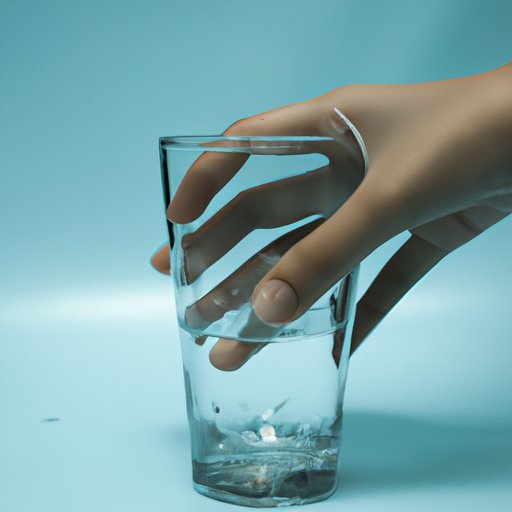Introduction
Drinking enough water is crucial for maintaining good health. Our bodies are made up of about 60% water and require adequate hydration to function properly. Not getting enough water can result in dehydration, which can cause a variety of negative health effects. In this comprehensive guide, we’ll explore how many ounces of water you should drink daily, the importance of staying hydrated, and how to make drinking water a habit.
The Science of Hydration: How Many Ounces of Water Do You Really Need Daily?
Hydration is important for many reasons. Our bodies use water in a variety of ways, from regulating body temperature to aiding in digestion. While the exact amount of water each person needs can vary depending on a number of factors, the general guideline is to drink at least eight 8-ounce glasses of water per day, or about 64 ounces total.
However, several factors can affect daily water intake. These include age, weight, gender, activity level, and temperature. It’s important to understand these factors to determine how much water you should drink daily.
H2O 101: A Guide to Understanding Your Daily Water Intake
The human body is composed of various sources of water, including blood, organ tissues, cells, and interstitial fluids. The amount of water your body requires daily depends on several factors, such as your body weight, age, gender, and physical activity levels. Men typically require more water than women, and fluids from food consumption can contribute to your overall daily water intake.
For example, fruits and vegetables, such as watermelon and spinach, contain a high percentage of water and can help increase daily water intake. Understanding the main sources of water in the body and factors that determine water intake can help you stay hydrated throughout the day.
Why Eight Glasses a Day May Not Be Enough: Finding Your Optimal Water Intake
The guideline of drinking eight glasses of water per day may not be enough for everyone. Factors such as age, weight, gender, and activity level can affect how much water your body requires. To determine your optimal daily water intake, you can use a simple formula: divide your body weight (in pounds) by two to find the number of ounces of water you should consume daily.
Other factors may also impact daily water intake. For example, humid environments and high-intensity workout routines can require higher water intake than the standard guidelines. To find your optimal water intake, consider these factors and adjust your water consumption accordingly.
No More Guessing: How to Calculate Your Ideal Daily Water Consumption
Calculating your ideal daily water consumption is simple. First, determine your weight in pounds. Then, divide that number by two to get the number of ounces of water you should drink daily. For example, someone who weighs 150 pounds should aim to drink at least 75 ounces of water per day.
In addition to body weight, other factors may affect your daily water intake. These include your activity level, environmental temperature, and overall health. If you’re unsure about how much water you should drink daily, consult with your healthcare provider for personalized recommendations.
Staying Hydrated: Tips for Reaching Your Water Intake Goals
Staying hydrated can be challenging, but there are several things you can do to reach your water intake goals. Try carrying a reusable water bottle with you throughout the day, setting reminders on your phone to drink water, and adding flavor to your water with fruits or herbs. You can also eat more hydrating foods, such as watermelon, cucumbers, and celery.
Finally, consider tracking your daily water intake using an app or journal. This can help you stay accountable to your goals and make drinking enough water a habit.
More Than Just Thirst: The Importance of Drinking Enough Water for Your Health
Drinking enough water is crucial for maintaining good health. Water helps regulate body temperature, aids in digestion, and supports healthy skin, among other benefits. Dehydration, on the other hand, can lead to negative health effects, such as headaches, constipation, and fatigue.
Making drinking enough water a habit can have a significant impact on your overall health. By staying hydrated, you can improve your energy levels, promote healthy digestion, and support healthy skin and hair.
Conclusion
Drinking enough water is crucial for staying healthy and feeling your best. By understanding the factors that affect daily water intake, you can determine how much water you should drink on a daily basis. Use the tips in this article to increase your water intake and make staying hydrated a habit. Remember, small changes can have a big impact on your overall health and well-being.
(Note: Is this article not meeting your expectations? Do you have knowledge or insights to share? Unlock new opportunities and expand your reach by joining our authors team. Click Registration to join us and share your expertise with our readers.)
